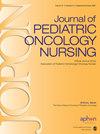视网膜母细胞瘤幸存者健康相关生活质量的文献综述
IF 1.9
3区 医学
Q2 NURSING
引用次数: 10
摘要
背景:视网膜母细胞瘤是一种眼部恶性肿瘤,通常出现在儿童早期,发生率约为2万分之一。虽然肿瘤的积极治疗通常在儿童时期完成,但幸存者经常遭受治疗的长期影响,包括视力损害,面部畸形,以及对复发或继发性癌症的恐惧。然而,很少有人知道这些长期影响如何影响他们的健康相关生活质量(HRQOL)。目的:回顾有关视网膜母细胞瘤幸存者HRQOL的文献。方法:我们检索了2005年1月至2018年12月的三个电子数据库,检索了有关视网膜母细胞瘤幸存者HRQOL或功能、认知和心理社会结局等单个领域的原创研究文章。结果:共纳入文献59篇,纳入文献15篇。五项研究报告视网膜母细胞瘤幸存者的HRQOL比对照组或一般人群差。父母代理的评分比幸存者的自我报告更差。结论:我们的研究结果证实需要进一步的HRQOL研究来评估影响青少年和青壮年视网膜母细胞瘤幸存者治疗相关的长期预后的因素。通过识别HRQOL特定区域的任何潜在缺陷,可以开发早期干预措施来改善视网膜母细胞瘤幸存者的HRQOL。本文章由计算机程序翻译,如有差异,请以英文原文为准。
A Review of Literature on Health-Related Quality of Life of Retinoblastoma Survivors
Background: Retinoblastoma is a malignant tumor of the eye that typically presents in early childhood and occurs in approximately 1 in 20,000 births. While active treatment of the tumor is typically completed in childhood, survivors often suffer from long-term effects from treatment including visual impairment, facial deformities, and fear of recurrence or secondary cancer. However, little is known how these long-term effects affect their health-related quality of life (HRQOL). Purpose: To review the literature on HRQOL in retinoblastoma survivors. Method: We searched three electronic databases from January 2005 to December 2018 for original research articles reporting on HRQOL or individual domains such as function, cognition, and psychosocial outcomes in retinoblastoma survivors. Results: A total of 59 articles were reviewed and 15 were identified as eligible. Five of the studies reported worse HRQOL in retinoblastoma survivors than controls or general population norms. Parent-proxy ratings were worse than survivors’ self-reports. Conclusion: Our findings confirm the need for further HRQOL research to assess the factors influencing long-term outcomes associated with treatment in adolescent and young adult retinoblastoma survivors. By identifying any potential deficits in specific domains of HRQOL, early interventions might be developed to improve HRQOL in retinoblastoma survivors.
求助全文
通过发布文献求助,成功后即可免费获取论文全文。
去求助
来源期刊
CiteScore
3.10
自引率
0.00%
发文量
0
审稿时长
>12 weeks
期刊介绍:
SPECIAL PATIENTS NEED SPECIAL NURSES
Caring for children with cancer is one of the most technically and emotionally difficult areas in nursing. Not only are you dealing with children and adolescents who hurt, you must reassure and educate families, balance a multitude of other health care professionals, and keep up with ever-changing nursing practice and care. To help special nurses stay aware of the newest effective nursing practices, innovative therapeutic approaches, significant information trends, and most practical research in hematology and pediatric oncology nursing, you need the Journal of Pediatric Oncology Nursing.
The journal offers pediatric hematology, oncology, and immunology nurses in clinical practice and research, pediatric social workers, epidemiologists, clinical psychologists, child life specialists and nursing educators the latest peer-reviewed original research and definitive reviews on the whole spectrum of nursing care of childhood cancers, including leukemias, solid tumors and lymphomas, and hematologic disorders. JOPON covers the entire disease process--diagnosis, treatment, recovery, and survival, as well as end-of-life care.
Six times a year, the Journal of Pediatric Oncology Nursing introduces new and useful nursing care practice and research from around the world that saves you time and effort. Just some of the spirited topics covered include:
Cancer survivorship including later-life effects of childhood cancer, including fertility, cardiac insufficiency, and pulmonary fibrosis
Combination therapies
Hematologic and immunologic topics
Holistic, family-centered supportive care
Improvement of quality of life for children and adolescents with cancer
Management of side effects from surgery, chemotherapy, and radiation
Management of specific symptoms/diseases/co-infections
Medication tolerance differences in children and adolescents
Pain control
Palliative and end of life care issues
Pharmacologic agents for pediatrics/clinical trial results
Psychological support for the patient, siblings, and families
The dynamic articles cover a wide range of specific nursing concerns, including:
Advanced practice issues
Clinical issues
Clinical proficiency
Conducting qualitative and quantitative research
Developing a core curriculum for pediatric hematology/oncology nursing
Encouraging active patient participation
Ethical issues
Evaluating outcomes
Professional development
Stress management and handling your own emotions
Other important features include Guest Editorials from experts in the discipline, Point/Counterpoint debates, Roadmaps (personal insights into the nursing experience), and Proceedings and Abstracts from the annual Association for Pediatric Hematology/Oncology Nurses (APHON) conference.
Your special patients need special nurses--stay special by subscribing to the Journal of Pediatric Oncology Nursing today!
This journal is a member of the Committee on Publication Ethics (COPE).

 求助内容:
求助内容: 应助结果提醒方式:
应助结果提醒方式:


